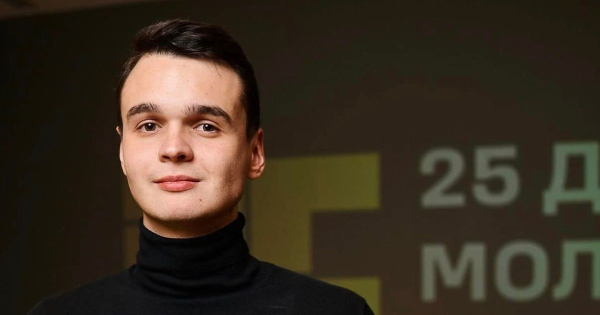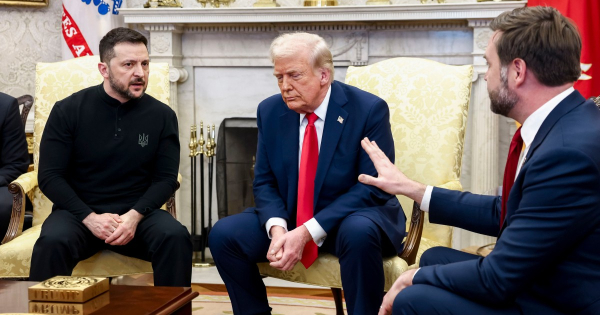
May 2023 will offer two political shows not to be missed: presidential and parliamentary elections in Turkey on 14 May and parliamentary elections in Greece on 21 May. In both countries, who have difficult bilateral relations, the stakes are high.
The saying goes that NATO made sure both Greece and Turkey joined (in February 1952) to prevent them from going to war with each other. History and geography weigh heavily on Ankara and Athens, and the control of the eastern Mediterranean and Aegean seas remains the basis of the countries’ rivalry.
But NATO membership could not prevent both countries from waging internal political wars. Turkey has been the scene of four coups d’état (1960, 1971, 1980, and 1997) and of a failed coup in 2016, while in Greece there have been coups in 1967, 1973, and an attempted coup in 1975.
The 1973 coup had wider geopolitical consequences, leading to the 1974 division of Cyprus, which further upped the ante in relations between Ankara and Athens. In 1981, Greece joined the EU (the European Community), while Turkey received candidate status for EU membership in 1999, but has lost interest to join in the meantime.
Both Turkey and Greece are countries with captured media.
Most, if not all, mainstream Greek media outlets are directly or indirectly owned by a handful of shipping industry magnates and influential businessmen. What is more, the majority of them – especially TV stations – maintain proven close ties to the ruling conservative New Democracy party and members of its leadership.
Greece ranks last in the EU (108th out of the 180 countries surveyed) in terms of media freedom, according to Reporters Without Borders. A new report, due to be published soon, is not expected to paint a better picture of Greece’s media landscape.
According to the same index, Turkey is ranked 149th. Around 90% of Turkey’s media are under government control, while abusive court cases and jailing of critical journalists are commonplace.
Turkish President Recep Tayyip Erdoğan faces his stiffest challenge yet.
His AK Party has been in power since November 2002, and he has ruled Turkey since 2003. Turkey has become increasingly authoritarian under Erdoğan’s iron fist and the opposition is seeking to reverse that.
An increasing number of Turks blame Erdoğan for the soaring inflation, because of his unorthodox and stubborn refusal to raise interest rates. The official inflation rate is just above 50%, but academics say it is actually higher than 100%.
The leader of the secularist CHP, Kemal Kılıçdaroğlu, 74, who is fighting as a joint candidate for six opposition parties, is leading in most opinion polls, but it doesn’t look like he will be able to win more than 50%, making it very likely that the presidential vote will go into a second round on 28 May.
When Greek Prime Minister Kyriakos Mitsotakis called parliamentary elections for 21 May, he said he wanted a clean slate to push through further reforms after four years at the helm.
But a deadly rail disaster last month, as well as runaway inflation that has left many people struggling to pay their bills, has stirred public anger and helped to erode his New Democracy Party’s lead over the opposition leftist party Syriza.
The Syriza leader, former prime minister Alexis Tsipras, also blames Mitsotakis and New Democracy for a phone-tapping scandal in which the prime minister had to fire his nephew from a top government post for signing permits to tap the phones of opposition members of the European Parliament and at least two journalists.
Polls suggest that the first round of the Greek elections in May will not result in forming a coalition government. New Democracy seems to have some advantage over Syriza, which has openly questioned the validity of published surveys.
In third place are the Greek socialists (Pasok), who may well play the kingmaker’s role but could just as easily be swept away by the dominance of the two big parties.
In practice, everything depends on who will win the most votes in the first round of the elections.
New Democracy has said it prefers a single-party government and does not believe in coalitions.
Syriza, for its part, clearly pushes for a progressive government with Pasok, who declared they could work with both – on condition that neither New Democracy leader Kyriakos Mitsotakis nor Syriza chief Alexis Tsipras becomes prime minister.
But if the socialists score poorly, they will have little leverage to determine who the next prime minister will be.
Still, Syriza and Pasok agree that a coalition should be formed right after the first round. This scenario seems unlikely, however, unless Syriza wins the first round of the elections.
Analysts also caution that a “government of the defeated” – via a vote of tolerance or the support of individual lawmakers from smaller parties – should not be ruled out either.
In any event, Pasok is keen to avoid a second round as it is estimated the two big parties will heavily polarise the atmosphere, and the electorate, which might even lead to the party’s eventual demise.
Behind the scenes, things got more complex after last week’s meeting between Tsipras and German Chancellor Olaf Scholz in Berlin, where they discussed, according to press reports, the progressive coalition governing model in the EU.
Scholz chose to meet Tsipras, who belongs to the EU left, rather than Pasok leader Nikos Androulakis, who belongs to the same socialist family as Scholz’s SPD.
In any event, the Greek vote seems unlikely to produce a clear winner, setting the stage for protracted political manoeuvring and a runoff vote in early July.
Given their geopolitical rivalry, both Greece and Turkey have an interest in achieving political stability sooner rather than later. Given their historic pedigree, the hope is that this would happen in the democratic remit, as imperfect as it may be.
Today’s edition is powered by Medicines for Europe European Pharmaceutical Strategy at a cross roads: Independence versus market consolidation? How can we ensure equitable and timely access to medicines for patients in Europe? Hosted by MEP Stelios Kympouropoulos, join Medicines for Europe and EU40 on May 3 at the European Parliament. Learn more >>
The Roundup
Poland became the primary destination for Ukrainians fleeing Russia’s war on the country, with millions crossing its border. With the fighting entering its second year, needs have shifted beyond humanitarian aid.
Russia unleashed a fresh volley of missiles on Ukraine overnight, causing huge blazes in a city in the east, damaging dozens of homes and wounding at least 34 people.
As China’s “wolf warrior” diplomats openly question the sovereignty of ex-Soviet states, including the Baltics, Eastern Europe should respond. Eastern European countries should invest in defense industrial supply chains that will not only bolster Ukraine but also support Taiwan, writes Joseph Webster.
The energy crisis and pressure to reduce consumption following the invasion of Ukraine have driven further demand cuts as EU institutions join efforts to cut energy use and emissions.
Look out for…
- Commission Vice-President Valdis Dombrovskis hosts high-level dialogue with Japan’s Economy and Trade Minister Nishimura Yasutoshi on Tuesday.
- Commission First Vice-President Frans Timmermans participates in 14th Petersberg Climate Dialogue and speaks at Strategic Dialogue on Global Stock-take and roadmap for global transformation on Tuesday-Wednesday.
- Commissioner Nicolas Schmit in Geneva, attends Growth Summit organised by World Economic Forum on Tuesday.
- Informal meeting of employment and social affairs ministers on Tuesday-Wednesday.
[Edited by Zoran Radosavljevic]
Source: euractiv.com



